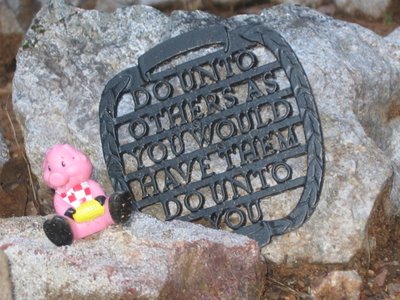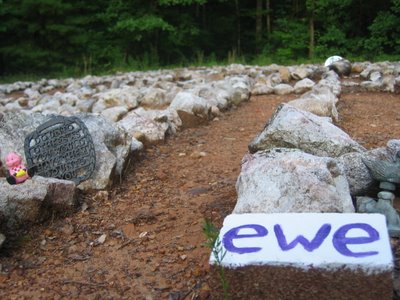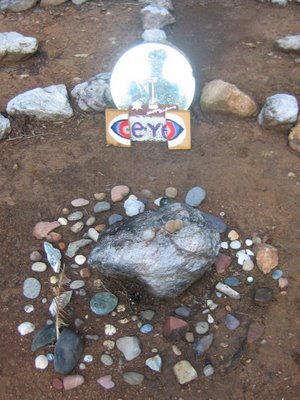



More gold from Grandma’s digging. Somewhere in one of Pop’s files she found out where he or someone else had typed out a short little two page history of Columbiana. It’s a small little place but it’s a good one, so if you know it, now you know…
The History of Columbiana
The City of Columbiana is in Shelby County, Alabama. It is the county seat of Shelby County. Shelby County was named after Isaac Shelby, Kentucky’s solider-governor who had been a Revolutionary War hero. He refused election to a second term as governor in order to fight in the Indian Wars. Although Shelby County has not had a very exciting past, there are a few incidents and people that are outstanding.
Most of the early people of Shelby County first lived in Montevallo, Wilsonville, and Harpersville. They originally came from Tennessee and Kentucky. The people who first lived in Columbiana moved in from Wilsonville and Harpersville.
In 1826 a county-wide vote was taken to decide whether the court would be moved from a little log courthouse somewhere near Pelham to Columbiana or to Montevallo. Columbiana won the election and to celebrate, the people made use of a large pine tree, since they had no guns, bells, or whistles. The citizens bored holes in the tree and filled it with powder. When touched off, it made a report which was heard in a four mile radius.
There are no old houses or ancient landmarks in Columbiana that date back earlier than 1820 because titles were not granted by the government until after 1821. Early white settlers held their land by virtue of what is known as Squatter Sovereignty. Also, there was the fear of attack by marauding bands of Indians who occasionally made destructive forays into the county. The settlers dreaded constantly having their possessions burned or stolen.
When government land offices were opened, farmers and others rushed in to supply for receive title of the choice lands. They then began improving their lands and by the 1850’s there were many fine houses around Shelby County and Columbiana. One is the home of Mrs. W.W. Wallace; one is the old Leeper place built in the 1830’s by judge J.T. Leeper and now owned by Harris M. Gordon, and the third is the original home of Jefferson B. Elliot and now known as the Bolton-Walton Funeral Home. William Atkin and Joseph Howard were the first comers to Columbiana. They cleared the land on which it now stands. When Columbiana became county seat in 1826 the Court House was established in a framed school building and remained there for 28 years. In 1854 a red brick building of more permanent nature was built on the same site of the school building. This building proved inadequate from the start. The building originally cost $2, 500. It included two large rooms, two smaller rooms in front of these, and one large room on the second floor to be used as a court room. The two larger rooms were used as offices for the Judge of Probate and the Registrar of Chancery. The two smaller rooms were for offices of the Sheriff and the Circuit Clerk. In 1881 alterations were added to complete the building. Added was a grand jury room in the back of the building and a vestibule in front. Several years later two small vaults were added in some of the offices.
Judge James T. Leeper was Judge at the time of completion.
This building remained as the court house until 1905 when the Court House was moved to its present site on Main Street. This new structure cost $300,000. It was built of Georgia marble. When the county outgrew this, a brick annex was added to the rear of the Court House. It contained offices and a jail on the third floor.
The first jail was on land located near the present L $ N railroad station, This gave place to the red brick jail on White Street. It was vacated in 1955 when the prisoners were moved to the new jail above the Court House.
The Town of Columbiana bought the old brick court house for $5000 and converted it into a City hall. Before the new City hall was bought, the offices were in a small structure on White Street that was built during World War II. Later it was enlarged to house the fire department and wil continue as the Fire House.
Among the men of affairs who were large land holders and had a prominent part in the development of this part of Alabama were: George Phillips, chief justice at the fist court held in Shelby County; Bennet Ware and Patrick Hayes, other justices at this court; Jacob Lawler, the presiding judge when the court was moved to Columbiana in 1826; Wiley H. Pope, Robert Bowden, Rubin Mardis and his two sons, N.B. and Samuel; Joseph Roper, Alphonso a Sterrett, Benjamin Wilson, David and George M. Mason, the Nelson family, and others. Many of the earlier settlers left the area before and after the War between the States. Some had been leaders in its early development but decided to try their fortune in Texas or farther west. Others went to Birmingham to acquire wealth and distinction.

No comments:
Post a Comment